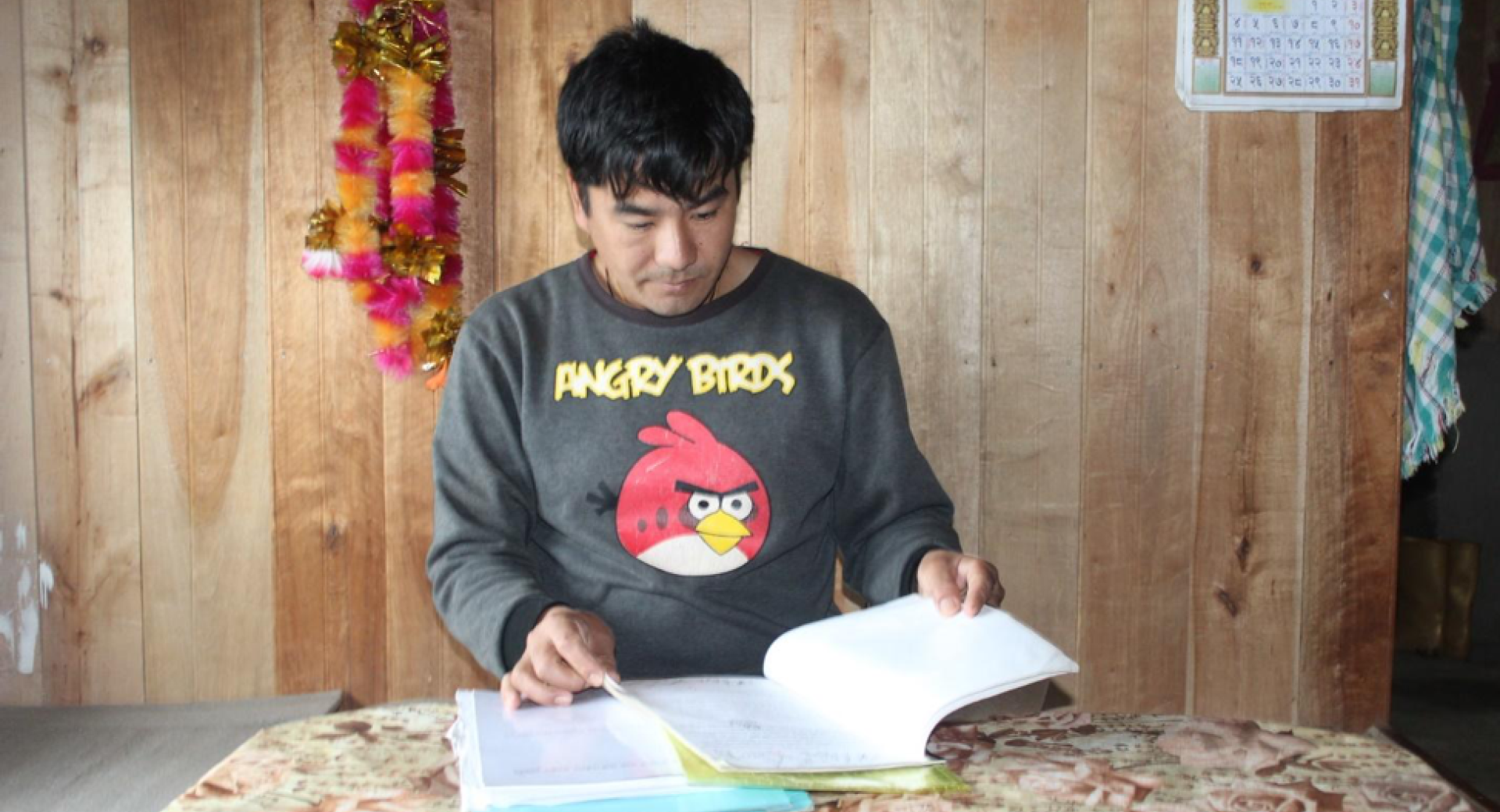
Dawa Lakpa Sherpa is a 32-year-old resident of Dobato, Ilam of Eastern Nepal and homestay operator. Besides homestay hosting, his source of income includes vegetable farming and medicinal plant cultivation. Dawa is educated and is a natural leader—qualities that make him a prime candidate for civic duty. It is not surprising that local people elected him as the new chairperson of the “Red Panda-based Ecotourism and Homestay Management Committee, Dobato.”
Dawa has observed red pandas many times in the local forests, and he is very aware of how important it is to protect them. Unfortunately, for a long time, Dawa was unable to be involved in local conservation efforts. This changed when he was able to join his fellow community members in the red panda awareness program.
Dawa suddenly found himself to be a part of the solution to deforestation and the decline of red panda numbers in Eastern Nepal. He already knew red pandas were vital to the Himalayan ecosystem but this experience also quickly revealed to him how the presence of this species can help improve the livelihoods of the people in his community.
In October 2014, with the support from Red Panda Network, and other organizations such as The Mountain Institute and The Mountain Organization of Nepal—the “Red Panda-based Ecotourism and Homestay Management Committee, Dobato” was established. The main goal of this committee is to protect red panda populations and habitats through sustainable approaches that also benefit local economies. The committee is responsible for the management of ecotourism-related activities but it is also involved in forest conservation, plantation programs, and management of water resources. The committee has also identified zones where it is suitable for ecotourists to observe red pandas during certain times of the year.
 Red panda photographed during RPN ecotrip. Photo by Kuniko Kai
Red panda photographed during RPN ecotrip. Photo by Kuniko Kai
The committee is self-sustaining through funds allocated from various ecotourism programs including homestays, nature guides, Forest Guardians, and Community Forest entry fees. 50% of the committee’s budget is directed towards forest conservation, 30% towards water resource management, and the remaining 20% supports a microloan program for struggling people in the community scholarships for promising students who are passionate about wildlife conservation.
“Through my work, I feel very engaged in red panda stewardship,” Dawa expresses during an interview with RPN intern, Sony Lama. Dawa goes on to say he now sees the connection between red panda conservation and sustainable living opportunities for local people. “They go hand in hand. Being the chair of the committee has given me a chance to serve for the betterment of the community and the forest.”
By:
Sony Lama
Field Intern
Red Panda Network
Danielle Lippe
Writing and Communications Volunteer
Red Panda Network
